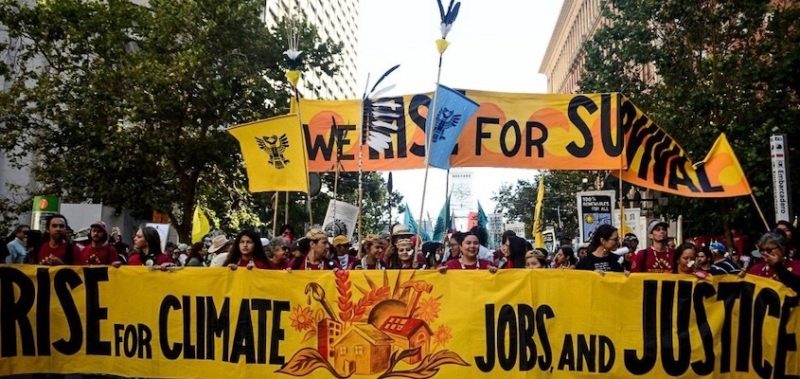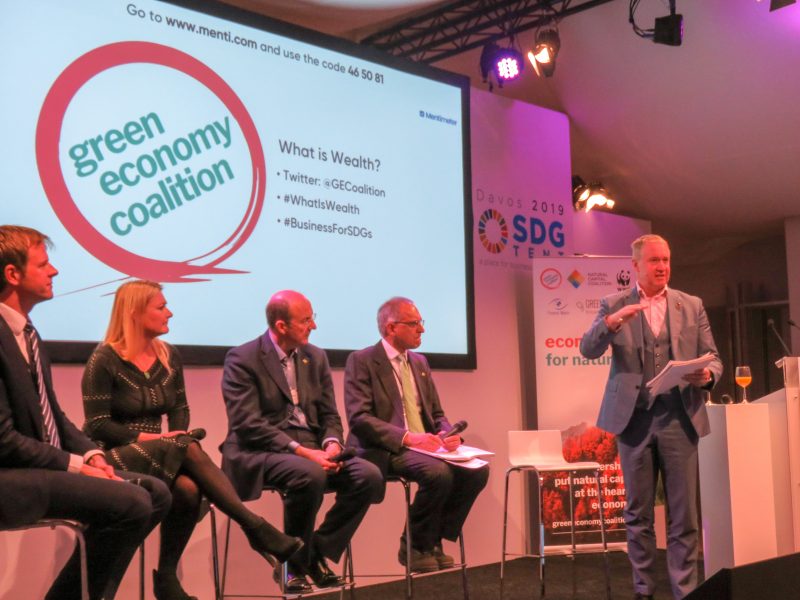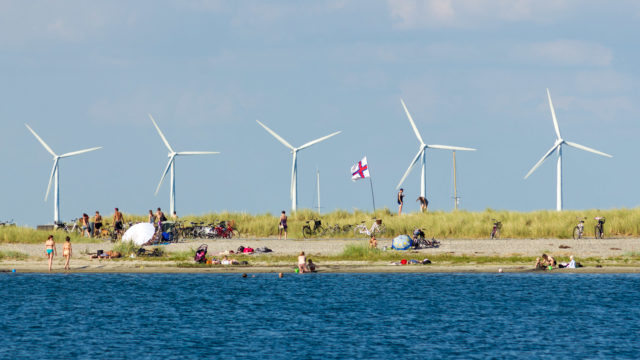A new economy is near
Three reasons for hope in the face of climate crisis and social upheaval

Our Director of Engagement Emily Benson is recently returned from our 2020 Global Meeting in India, and our Stakeholder Capitalism roundtable in Davos. Here she reflects on the common threads that unite those two disparate movements...
Hope has been in short supply recently. Our headlines have been filled wildfires sweeping across Australia and the Amazon; spiralling inequality and social unrest; grubby politics and corporate greed; and mindless consumerism contrasted with continued poverty. It’s difficult to find any bright spots. So why am I feeling hopeful?
The quiet revolution of social entrepreneurship
Having just returned from GEC Global Meeting in India, it’s clear that, in cities and villages around the world, a quiet revolution is taking place. Small businesses and informal enterprises are responding to the climate emergency and rising social inequality with extraordinary levels of innovation.
This new wave of “small green enterprises” are transforming multiple sectors simultaneously: accessible clean transport, by retrofitting traditional rickshaws into electric vehicles; domestic heating and cooking, by recycling old coffee grinds into affordable fuel; local energy by rolling out off-grid renewables that bring light to poor households for the first time. And, because small green enterprises are rooted in their local contexts, they are proving much more sensitive to local concerns and social challenges than their larger national or global corporate counterparts.
“ Alternative social and green business models are adept at growing sideways rather than upwards. They are replicating their success in different locations but keeping the profits local.”
The standard critique of green small enterprises is that they cannot take sustainability 'to scale': either they remain tiny green specks of hope in brown industrial wasteland, or they find it difficult to retain social purpose or a small environmental footprint as they expand.
But what we’ve been seeing around the world suggests that this is no longer the case. Alternative social and green business models are adept at growing sideways rather than upwards. They are replicating their success in different locations but keeping the profits local. Take for example, the model of ‘fly ash’ bricks. To meet India’s booming construction industry, a network of small enterprises have sprung up that upcycle waste coal ash into ‘eco bricks’, while also training women to run the businesses.
We’re also seeing networks of small enterprises teaming up to change the policy debate. In Peru, our partners Libelula and FNI have co-created a new hub of over 200 local green enterprises, coming together to share expertise and lobby the government for new green legislation. Similar networks of small green enterprises are emerging in the UK, Malaysia, the Caribbean, and around the world (check out our Green Economy Tracker to see which governments are leading the way).
Here’s a thought: What if we were able to connect all these local green enterprises into a world wide web - a global marketplace - of innovation and action?
A new story is emerging
Two weeks ago I was at Davos, listening to some of the world’s wealthiest businessmen pronounce the end of capitalism. Klaus Schwab, founder of the World Economic Forum, declared it is time to move from ‘shareholder capitalism’ to a form of ‘stakeholder capitalism’. Mark Benioff, CEO of Salesforce, stated to great fanfare that 'Capitalism as we have known it is dead’. And the Financial Times has announced that 2020 must be the year to ‘reset capitalism’.

It’s difficult to take some of these statements seriously. Does Larry Fink’s recent letter to CEOs warning of environmental risk mean that he’s committed to shifting BlackRock's $7.4 trillion under management towards restoring the global commons? Does Klaus Schwab’s version of ‘stakeholder capitalism’ address the issues of local ownership and justice?
But, far from the snowy slopes of Davos a week later, I found myself listening to other more compelling voices also questioning the fundamental premises of capitalism. In India I took part in debates amongst a thriving network of highly respected academics, businesses and community leaders, who are charting the emergence of a different form of capitalism. These new models are rooted in self-governance, cooperation, the pursuit of wellbeing and a respect for all forms of life. Together with thinkers from around the world they are building a ‘global tapestry of alternatives’.
Compared to these deep-rooted, place-based versions of a new economy, the conversations at Davos felt remote and abstract. But what gives me hope is the fact that people in the corridors of power are finally start to ask the same questions as people on the streets. I think we are starting to see a new narrative emerge.
Women are taking up the reins of the economy
My third reason for hope is a new dawn of female leadership. Women are increasingly taking over the reins of the economy, and at both national and local levels, this new generation of female leaders is starting to drive a different agenda. In New Zealand, Jacinda Arden is redefining what ‘progress’ means away from the mantra of GDP growth towards improving wellbeing. In May her government will produce it’s first “wellbeing budget” which explicitly focuses on improving living standards and human, social and natural capital for future generations. Similarly, Nicola Sturgeon is championing Scotland’s move to go beyond GDP, Sweden’s 2019 net-zero bill was led by deputy PM Isabella Lovin and female ministers, while Iceland’s Katrin Jakobsdottir’s government is advocating green and family-friendly priorities over GDP alone. (Check out the GEC Global Barometer for more global insights on the transition to green economies).
“ But what gives me hope is the fact that people in the corridors of power are finally start to ask the same questions as people on the streets.”
And outside of government, women from around the world are fundamentally re-shaping what economics means, at social, business, and personal level. Kate Pickett's research in the Spirit Level exposed the realities of global inequality; Kate Raworth’s Doughnut Economics introduced the concept of a social floor in the context of planetary boundaries; Sunita Narain’s tireless environmental advocacy; Katherine Trebeck’s compelling work showing that a wellbeing economy is indeed possible; Zeenat Niazi’s championing of small green enterprises; Mariana Mazucato’s revelatory work on state-led entrepreneurship; Alexandria Ocasio-Cortez’s championing for a socially just Green New Deal in the USA; Christiana Figueres’s tireless work on getting governments to agree on climate change targets; Tasneem Essop’s advocacy for climate justice for the poor and marginalised - the list could go on and on.
But one thing is certain: women are throwing out old assumptions of what an economy is for, what success means, and how we might best manage our societies for the benefit of all.
Conclusion
A revolution in green social enterprise; a shared realisation amongst ordinary people and global leaders that change is urgently necessary; and a new generation of empowered and iconoclastic women leading the charge. These three things don’t make the headlines any less scary. But they do give me hope.
In the words of Arundati Roy: “Another world is not only possible, she is on her way. And on a quiet day, I can hear her breathing.”


